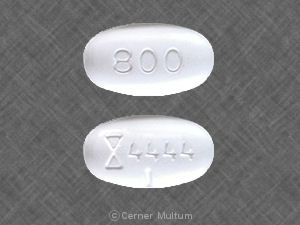Neurontin is the trade name for the generic drug gabapentin. It is useful as an anti-epileptic drug and as an analgesic, particularly for pain of the neuropathic or neurogenic type. (pain from irritation or inflammation of nerves). When used for controlling epilepsy, it is usually used in conjunction with another anti-epileptic drug. It is used much more extensively in the medical field to treat pain than it is to treat epilepsy.
How gabapentin works to prevent migraine attacks ?
Gabapentin’s role in migraine prevention isn’t well known.
It’s believed that it may influence electrical activity in the brain through neurotransmitters and block calcium channels. It may also be a factor in reducing excitatory neurotransmitters like glutamate.
Still, more research needs to be done to determine why it works.
Generally, gabapentin isn’t used as a primary therapy for migraine prevention, but as an additional treatment to support other therapies.
The drugs used to prevent migraine attacks are different from drugs that treat an acute attack. Drugs that prevent migraine symptoms, such as gabapentin, must be taken on an ongoing basis to work properly.
The chemical structure of gabapentin is related that of gamma-aminobutyric acid (GABA) which is a neurotransmitter in the brain. The exact mechanism as to how gabapentin controls epilepsy and relieves pain is unknown, but it probably acts like the neurotransmitter GABA.
Animal studies show that gabapentin prevents the development of allodynia (a normally non painful stimulus which is perceived as painful) and hyperalgesia (an exaggerated response to a painful stimulus).
Gabapentin can be very helpful in controlling the pain of trigeminal neuralgia (tic doloreaux), post herpetic neuralgia (the lingering pain after a bout of shingles), the pain of diabetic neuropathy and other neuritic pains such as pain from nerve irritation due spinal arthritis or disc disease and occipital neuralgia. Occasionally it seems to be helpful in controlling migraine and other headaches. It has also been reported to be helpful in controlling the pain of fibromyalgia.
International and domestic studies that have evaluated Neurontin for migraine prevention suggest that it is effective. In a study of 63 patients with migraine (with or without aura), gabapentin significantly reduced migraine frequency and intensity among 30 patients who received it. In this study, adverse events were mild to moderate in severity.

Similarly, in a large study, 143 people with migraine received daily doses of Neurontin or placebo for 12 weeks. At the end of 12 weeks, the migraine rate had declined from 4.2 migraines before treatment to 2.7 migraines after treatment in those who received this drug.
This decrease was significantly greater than the decrease from 4.1 migraines to 3.5 migraines among those who received placebo. Of the 56 gabapentin recipients, 46% had at least a 50% reduction in the four-week migraine rate. Drug-related adverse events (sleepiness and dizziness) led to drug withdrawal in 13% of patients in the gabapentin group compared with 7% in the placebo group. The researchers concluded that this medication is an effective and well-tolerated preventive for migraine.
Gabapentin is an effective prophylactic agent for patients with migraine. In addition, gabapentin appears generally well tolerated with mild to moderate somnolence and dizziness.
Gabapentin dosage information for migraine
The dosage for gabapentin for migraine ranges from 300 to 3,600 milligrams (mg) per day, depending on your age and other health factors.
Gabapentin for migraine prevention can be taken with or without food and comes in an extended release tablet, an immediate release tablet, or an oral solution.
Side effects of gabapentin include:
- vision changes such as blurred vision
- unusual eye movements
- ataxia (loss of coordination)
- swelling in the limbs or feet
It’s important to follow your doctor’s recommendations on dosage and weaning off of the medication if needed. Never take more than is recommended by your doctor, even if you miss a dose.
